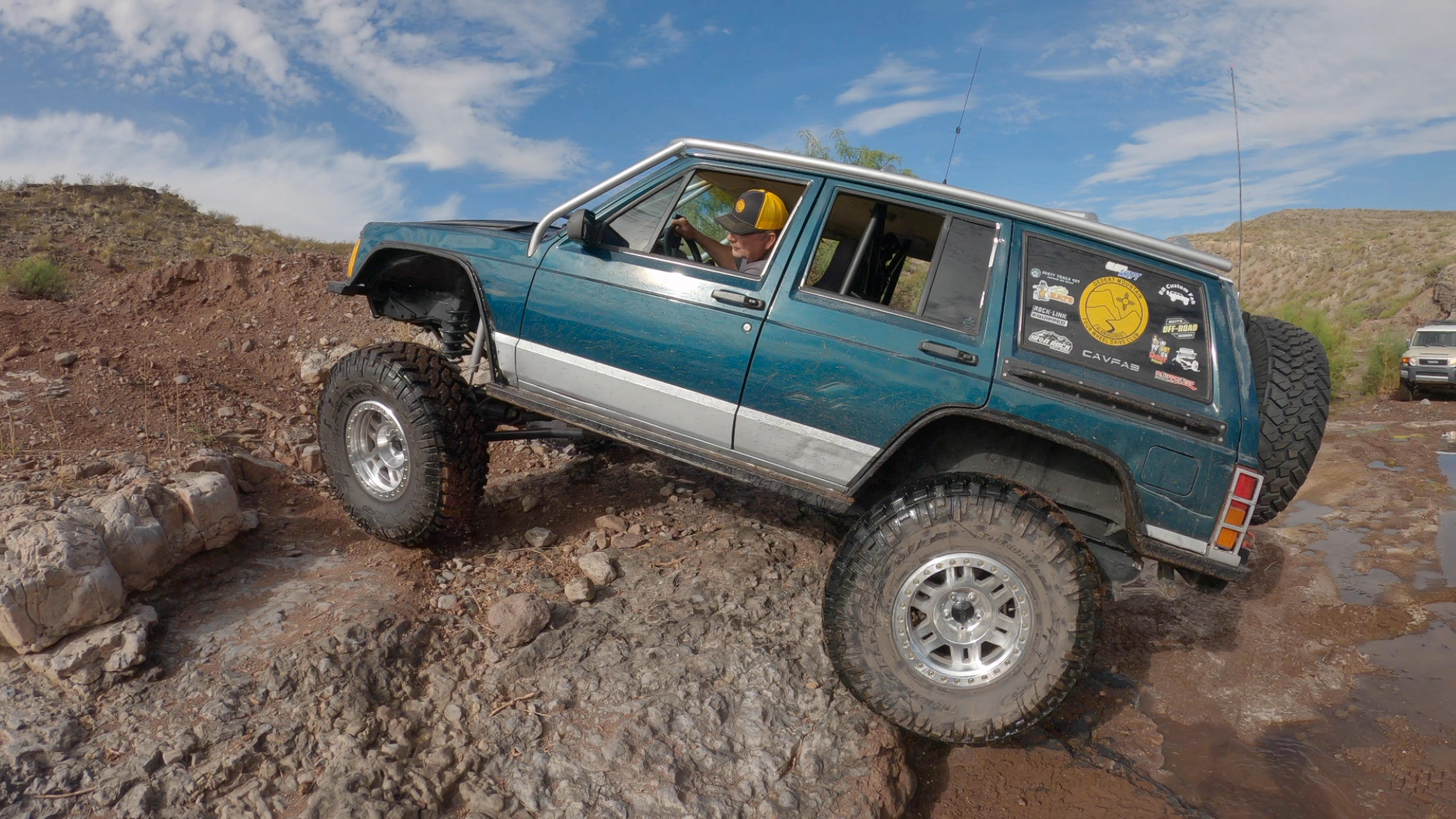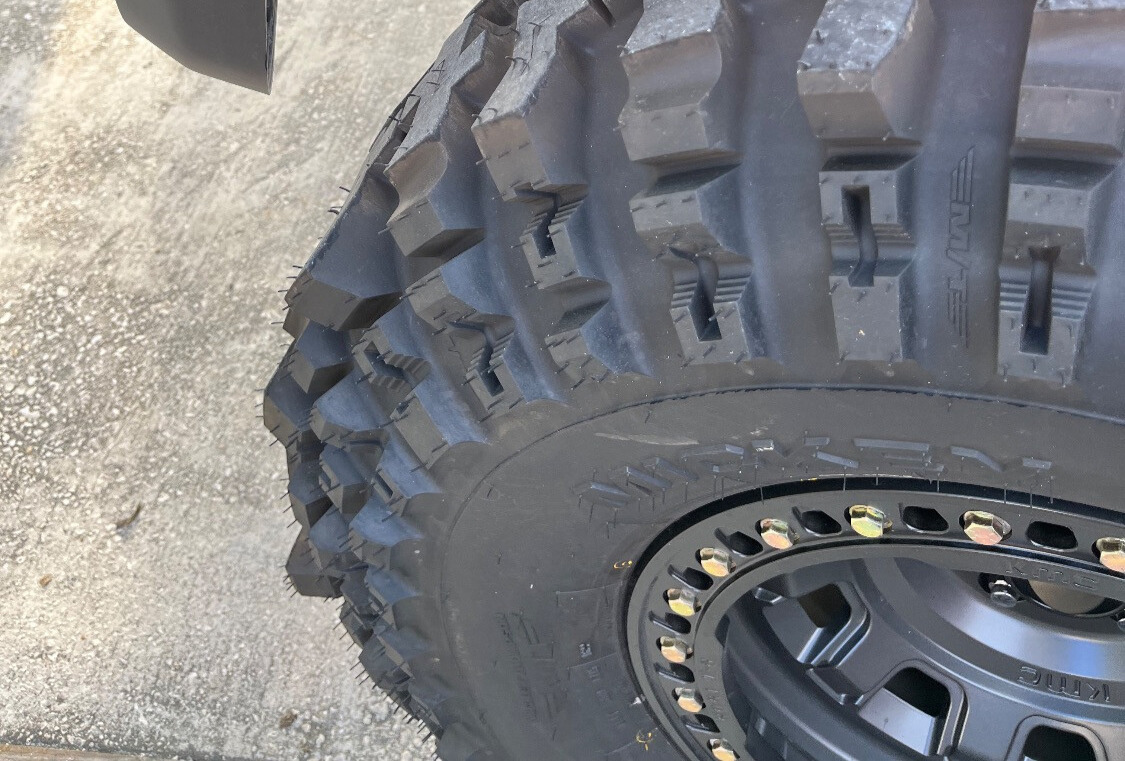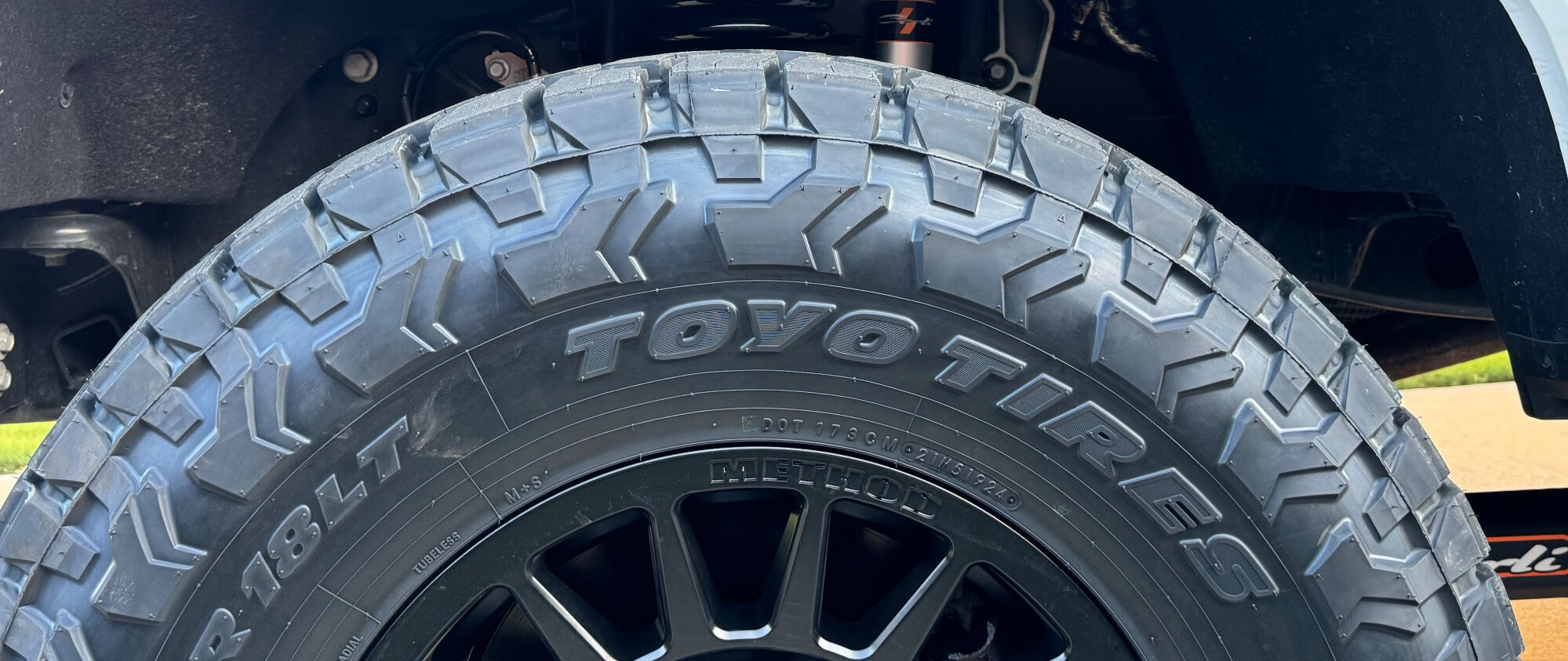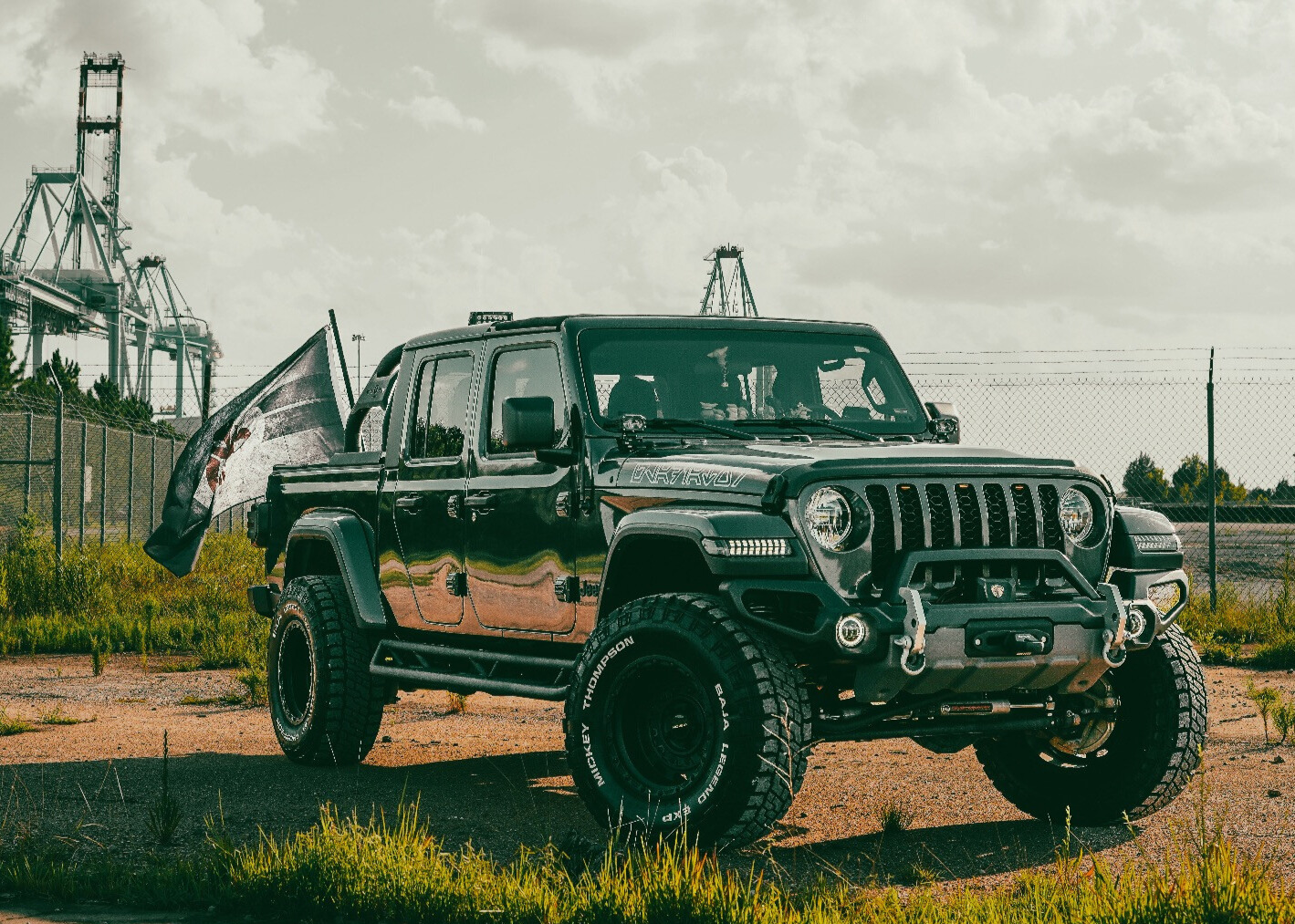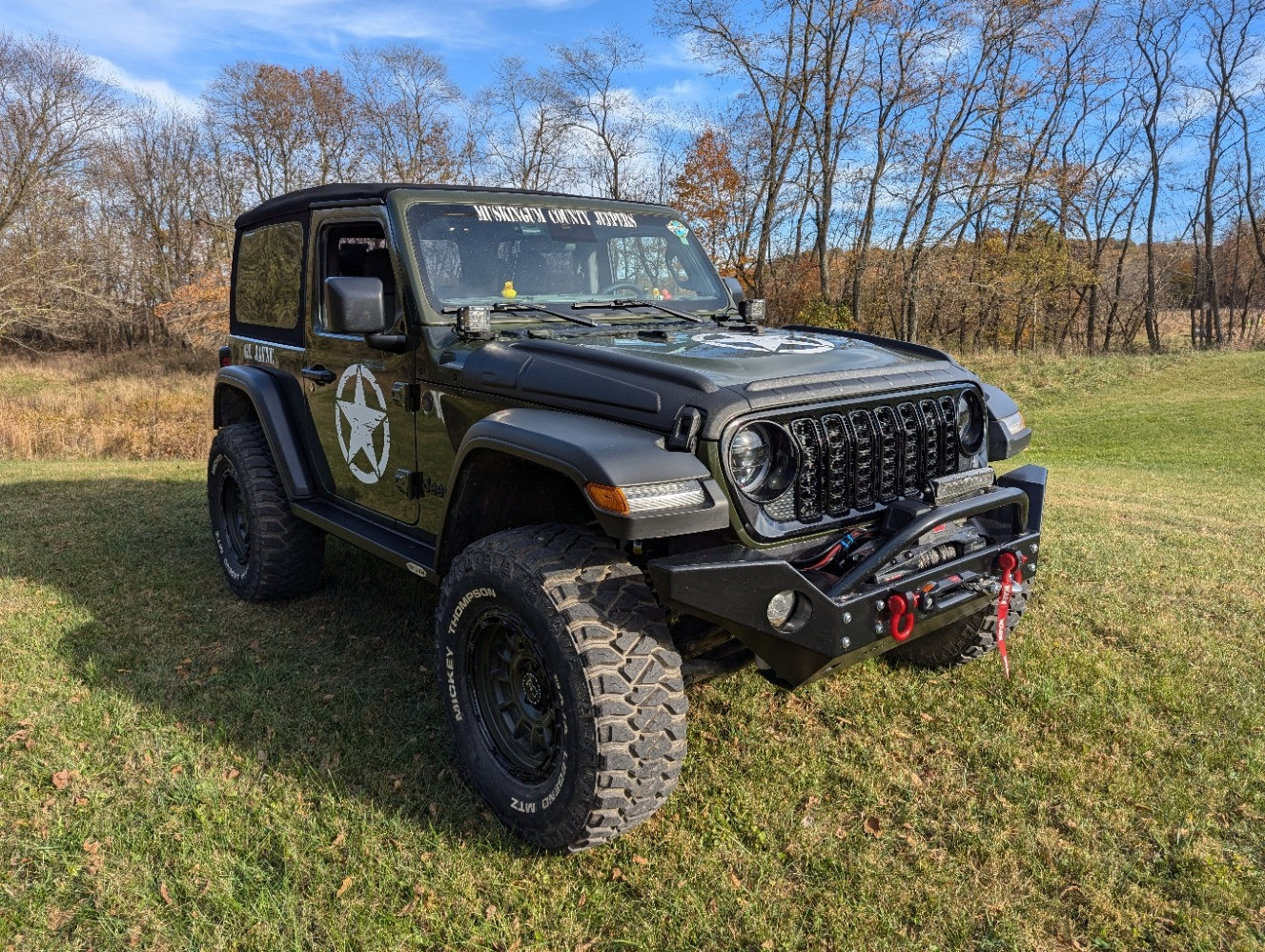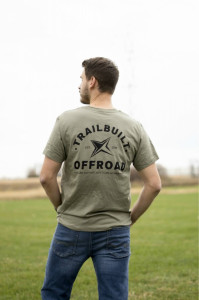Beadlocks Vs. Bead Grip Vs. InnerLock - Which One's Worth Your Money?
August 12, 2025
Do You Actually Need Beadlocks For Your Off-Road Rig?
Table of Contents
- What Is a Beadlock Anyway?
- The Science Behind Beadlocks
- Maintenance & Time Commitment
- DOT Compliance: The Legal Gray Zone
- Beadlock Alternatives
- Cost Breakdown
- Final Verdict - Which Off-Road Wheel Type Is Best?
Beyond the Instagram flex and trailhead bragging rights — do you really need beadlocks? Let’s dig into it with some off-road physics, a little wrench-turning reality, and, of course, some TrailBuilt torque.
Today, we'll be showing you the difference between Beadlock wheels and their top alternatives: bead grips and innerlocks. All of these have their benefits, and we want to show you which type you should go with for your rig. Let's dive in!
What Is a Beadlock Anyway?
The bead is that thick, steel-reinforced edge of your tire — the handshake between rubber and rim. Air pressure pushes it tight from the inside out, kind of like a balloon jammed in a coffee mug.
At street pressure (around 35 PSI), no problem — that bead is locked in like it’s got rent control.
But drop it down to 8–10 PSI for rock crawling, sand, or soft terrain, and that pressure can’t keep the bead in check. That’s when you risk debeading — your tire popping off the wheel like a toddler yanking off their Crocs.
Enter beadlocks: a bolt-on outer ring that physically clamps the tire bead to the wheel, giving it a steel bear hug with 20+ bolts. It’s basically the duct tape of wheel security… only don’t actually use duct tape.
The Science Behind Beadlocks
Beadlock rings work by applying enough clamping force to overpower any force trying to push the bead off. Each bolt gets torqued to about 8–12 ft-lb — evenly — so one bolt isn’t doing all the work.
The bead-to-wheel contact has a coefficient of friction between 0.5 and 0.7, which is grippy, but not enough on its own when you’re aired way down.
One downside? Those bolts go through the bead area, and if not sealed right, they can turn into tiny air-leak gremlins. Beadlocks keep your tire on the wheel, but they’re not always great at keeping air in it.
Maintenance & Time Commitment
Beadlocks are not a set-it-and-forget-it upgrade. You’ll be:
- Torque-checking before and after every ride
- Dealing with extra weight (especially steel rings)
- Facing the tire shop side-eye when it’s time for balancing
Bottom line: owning beadlocks is like owning a high-performance dog — awesome, but you’ve got to feed it, walk it, and pick up after it.
DOT Compliance: The Legal Gray Zone
Here’s the buzzkill: most traditional beadlocks are not DOT-approved for street use.
Why? If a bolt backs out at 70 mph, it can turn into a roadside ninja star.
There are DOT-compliant alternatives, usually hybrids or internal locking systems, but the old-school bolt-on beadlocks are officially for off-road use only. If you daily drive with them, you’re rolling in legal gray area territory.
Beadlock Alternatives
If the legal hassle or maintenance is beginning to scare you off or otherwise make you hesitant to pull the trigger, there are slick alternatives from Method and ICON:
- Method Race Wheels Bead Grip – Uses aggressive bead seat ridges and grooves to bite into the tire bead, letting you air down to 10–12 PSI without a locking ring. Fully DOT-compliant.
- Icon Alloys Interlock – Internal billet aluminum ring with an O-ring seal that traps the inner bead, reduces tire flex, and protects against side loads. No external bolts, OEM look, street legal.
Cost Breakdown
| Wheel Type | Price Per Wheel | Legal Status |
|---|---|---|
| Traditional Beadlocks | $400–$700 | Off-road only |
| Method Bead Grip | $300–$400 | DOT compliant |
| Icon Interlock | $200–$300 | DOT compliant |
If you’re a weekend warrior tackling moderate trails, a good wheel and proper airing technique will get you 90% of the beadlock benefit without the headache.
Final Verdict - Which Off-Road Wheel Type Is Best?
When you're building your rig and are planning on getting some new wheels, here are some of the most important things to think about:
- Your trail type
- How low you air down
- Your tolerance for bolt-torquing
- Whether you daily drive your rig
If you want the full clamped-down, low-PSI crawling confidence, beadlocks are the move. But if you want low-maintenance street legal performance, beadlock-style alternatives are hard to beat.
Drop your rig setup and tire size in the comments — we’ll help you pick your best match. And if you’re ready to grab beadlocks or the next best thing, hit up TrailBuiltOffRoad.com. We’ll mount, balance, and set you up to tackle whatever trail comes your way.
Stay dirty. Keep it trail.
